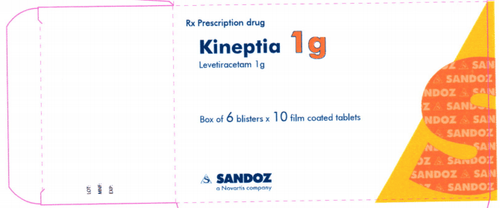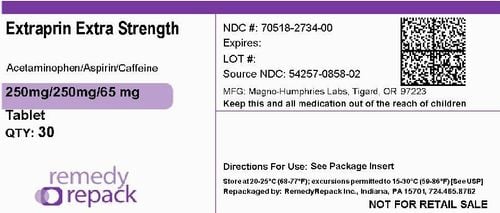This is an automatically translated article.
Topiramate belongs to the class of anticonvulsant psychotropic drugs, often used alone or in combination with other drugs to prevent and control epilepsy. In addition, the drug Topiramate is also used to treat migraine headaches, effectively reducing the frequency of headaches.
1. What is Topiramate?
Topiramate is a sulfamate-substituted monosaccharide antiepileptic agent with effective antiepileptic effects such as:
Topiramate increases the frequency of gamma-amino butyrate (GABA)-activated GABAA receptors to creating chloride ion flows to neurons, thereby increasing the activity of inhibitory nerve mediators; Topiramate inactivated kainate/AMPA on the glutamate receptor subgroup but had no apparent N-methyl-D-aspartate (NMDA) activity on the NMDA receptor subgroup; Topiramate inhibits several isoenzymes of carbonic anhydrase, this effect is much weaker than acetazolaminde and is not the main mechanism of Topiramate. In general, Topiramate 25mg is usually indicated in the following cases:
Initial monotherapy or adjunctive therapy for epilepsy in adults or children > 4 years of age when partial onset seizures with or without seizures generalized convulsions , tonic-clonic seizures or convulsions associated with Lennox-Gastaut syndrome; Prevention of migraine in adults. Topiramate drugs are contraindicated:
For patients who are sensitive to any of the ingredients of the drug; People who use alcohol in the 6 hours before or after taking the drug; Concomitant use with Metformin ; Prophylaxis of migraine in pregnancy; Women of childbearing age do not use highly effective contraception.
2. Dosage of the drug Topiramate
Topiramate is usually taken orally in the form of tablets, not to be chewed because of the bitter taste. If the patient cannot swallow, the tablet can be crushed and mixed with oatmeal or apple sauce and used immediately to ensure the stability of the drug. Depending on the treatment goal, the dosage of Topiramate will be different, specifically as follows:
For adults as monotherapy for epilepsy:
It is recommended to start with a dose of 25 mg/day administered every night of the week. , then 1-2 weeks increase the dose to 25-50 mg/day in 2 divided doses; The recommended initial dose of Topiramate monotherapy is 100-200 mg/day and the maximum daily dose is 500 mg; For some epilepsy that is difficult to cure, topiramate can be tolerated at a dose of 1000 mg/day; The above recommended doses are only for patients without kidney problems. For adults on adjunctive treatment for epilepsy:
Initial dose: 25-50 mg every night for the first week; Then every 2 weeks should increase the dose to 25-50 mg / day, divided into 2 times; The usual dose is 200-400 mg / day, divided into 2 times can be used up to 600 mg / day. For the treatment of migraine in adults:
Initial dose: 25 mg taken every night for 1 week; Increase the dose by 25 mg/day every week if the patient is not able to tolerate it, the interval between increments should be extended; Some patients have to take doses up to 200 mg/day but side effects should be taken into account. For pediatric epilepsy monotherapy:
Children > 2 years: initial dose is 1-3 mg/kg every evening for the first 2 weeks; Increase dose 1 or 2 weeks later, about 1-3 mg/kg/day, divided into 2 times; The recommended first dose in monotherapy with Topiramate is 3-6 mg/kg/day. For supportive treatment of pediatric epilepsy:
Children > 2 years old, the recommended total daily dose is about 5-9 mg/kg/day, divided into 2 times; Dose titration should begin with a dose of 25 mg, taken every evening for the first week; To achieve optimal clinical response, the dose should be increased 1-2 weeks later within the range of 1-3 mg/kg/day in 2 divided doses; The daily dose may be up to 30 mg/kg/day. For special subjects:
Patients with renal failure with creatinine clearance <70 ml/min need to reduce 50% of the adult daily dose; Patients on hemodialysis may require an additional dose after dialysis; Patients with moderate to severe hepatic impairment should be cautious when using Topiramate; Topiramate dose adjustment is required in elderly patients with renal impairment.
3. Topiramate side effects
In some patients when using Topiramate, side effects may occur such as:
Weight loss/weight gain, dizziness, paresthesia, somnolence; Nausea, diarrhea; Nasopharyngitis, fatigue; Anemia, memory impairment, cognitive disorders, inability to concentrate; Convulsions, loss of balance, loss of taste, blurred vision, visual disturbances, tinnitus, ear pain; Nosebleeds, flatulence, dry mouth; Kidney stones, difficulty urinating, itching, joint pain, muscle pain, muscle twitching; Dry eyes, photophobia, dilated pupils, farsightedness.
4. Be careful when using Topiramate
Some general notes when using Topiramate include:
In case it is necessary to stop taking Topiramate, the patient should be closely monitored; Some patients may experience increased frequency of seizures or new seizures with Topiramate due to overdose, decreased concentrations of the concomitant epilepsy drug, or disease progression or adverse effects; Patients should drink plenty of fluids while taking Topiramate to reduce the risk of kidney stones and avoid heat-related undesirable effects; Use of Topiramate may increase the risk of conduct disorder or depression, so close monitoring of the patient is required; Patients with a history of liver disease should use caution when taking the drug because its clearance may be reduced; Acute eye pain associated with angle-closure glaucoma has been reported with the use of Topiramate with symptoms including acute visual acuity, eye pain, dry anterior chamber, red eye, glaucoma, and with or without pupil dilation. At this point, topiramate should be discontinued immediately and appropriate treatment to reduce intraocular pressure; Increased blood chloride, acidosis may be associated with the use of Topiramate increases the risk of kidney stones, osteoporosis. Some common drug interactions with Topiramate include:
Co-administration of Topiramate with carbamazepine may decrease Topiramate concentrations; Co-administration of Topiramate with phenytoin may increase phenytoin concentrations. Do not take Topiramate with alcohol or other CNS depressants; Possibility of decreased effectiveness of oral contraceptives and increased risk of bleeding when combined with oral contraceptives and Topiramate; Metformin plasma concentrations may increase and decrease Topiramate clearance when co-administered; Co-administration of Topiramate with drugs that cause kidney stones increases the risk of kidney stones in patients; Hyperammonemia has been reported when Topiramate is co-administered with valproic acid, with or without encephalopathy. The above article is to answer questions about Topiramate, what it is, its uses and notes when using it. Patients should strictly follow the instructions on dosage and use of drugs from medical professionals to achieve the best treatment effect.
Please dial HOTLINE for more information or register for an appointment HERE. Download MyVinmec app to make appointments faster and to manage your bookings easily.













